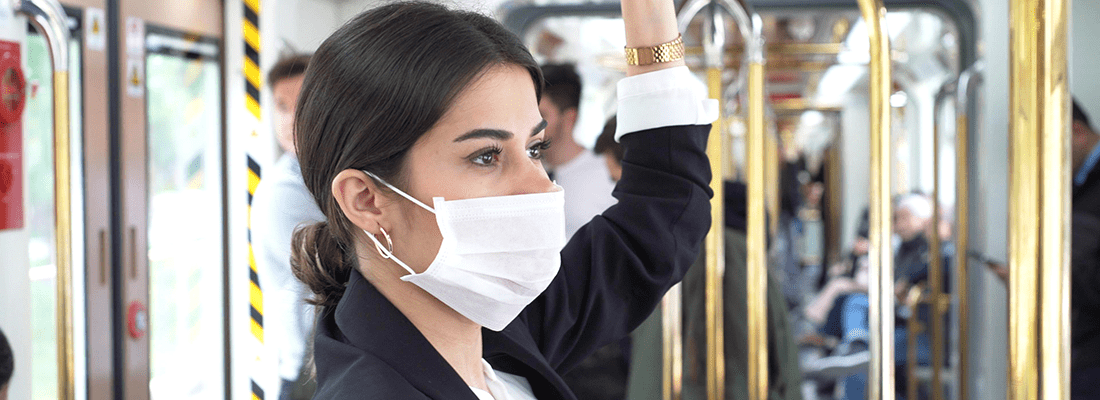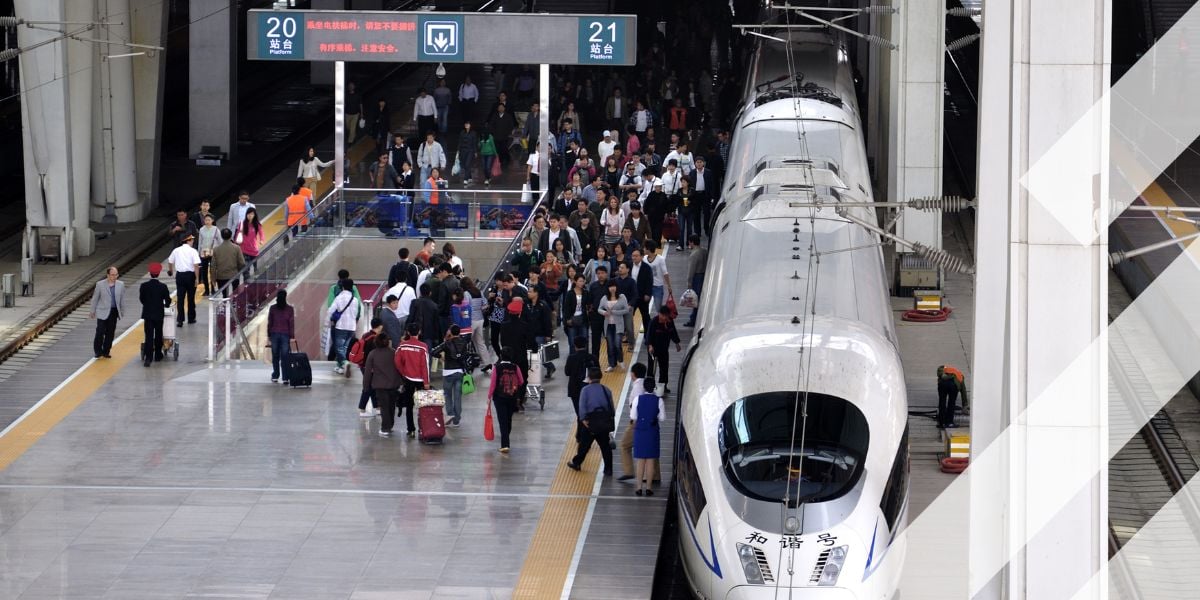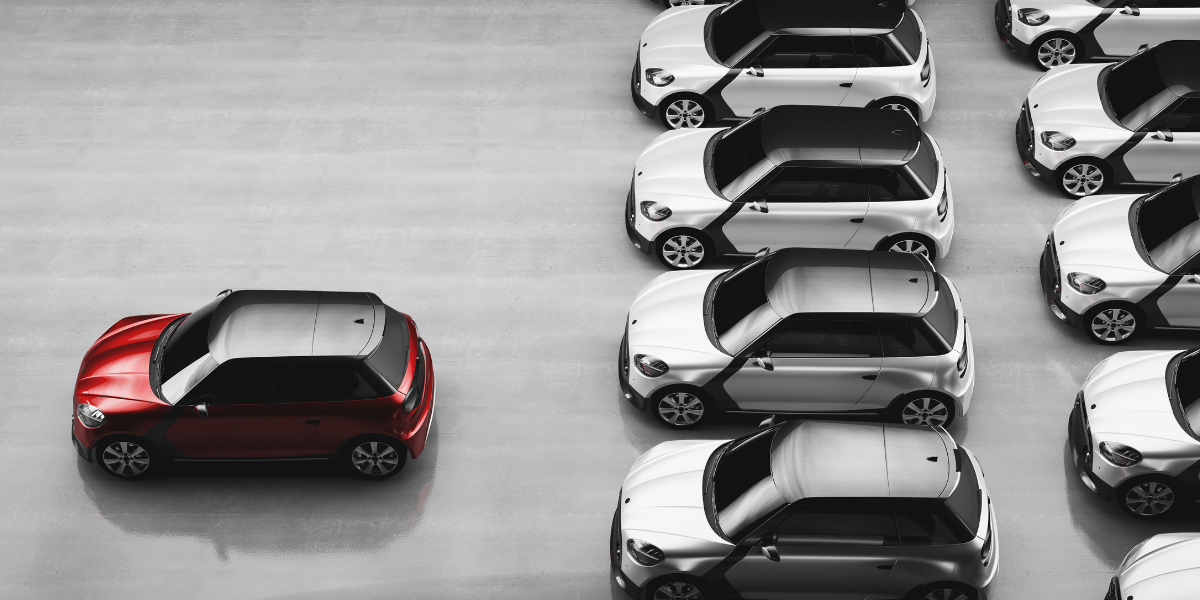How COVID-19 pushes mobility innovations
First published: 19-03-2020
Updated: 30-04-2020
The year 2020 started off in a way no one expected. COVID-19 appeared and rapidly impacted many industries across the globe. With people staying home, a decrease in traffic and use of transport, the mobility industry is challenged to come up with innovative solutions. This article covers examples of how companies have responded to the challenge.
1. Improving health and environment
2. Autonomous delivery vehicles
3. Developments in ride-hailing
4. Automotive multinationals offer to help
5. Micro mobility companies
6. Road space turned into bicycle lanes in a couple of days instead of years
1.Improving health and environment
The recent decrease in traffic and use of transport, resulted in significant drops of air pollution and warming gasses around the world. For instance, in New York, carbon monoxide from cars was down almost 50% compared to last year. In China, the measures taken by the government led to a significant reduction of air pollution. The image below shows the pollution of nitrogen dioxide (NO2), which appears in the air mainly from automobiles and power plants.

Source: NASA Earth Observatory pollution satellites.
Also in the Netherlands, less traffic, less production and less tourism have resulted in an unprecedented decrease in air pollution. The Royal Netherlands Meteorological Institute wanted to filter out the weather influences as much as possible. Therefore, 22 to 26 March 2020 was compared to 23 to 27 February 2019 because the weather was more or less the same.

A bike plan, initiated in Denmark, is an example which is also leading to a reduction of carbon monoxide in the coming period. This bike plan, introduced by the government, is urging people to travel by bike instead of public transport, asking the community to change behavior so as to hinder coronavirus spread. Transport Minister Benny Engelbrecht says: “In the current situation with coronavirus we urge commuters to be considerate of each other and especially towards the elderly fellow travelers."
Another example of the promotion of cycling is done by the London Cycling Campaign, a registered charity. They have launched a chatbot on Facebook Messenger who will provide advice for people who need additional help or guidance about cycling. The chat will help with basic cycle skills, locking and parking bikes, safe route planning, where to buy bikes and equipment, and tips on safety in traffic. This initiative was taken on the hypothesis that the number of people choosing bikes over other transport modes will increase due to the coronavirus crisis. Of course, the organization advices to stay at home where possible, but for essential and short journeys, cycling is the best way to do it.
2.Autonomous delivery vehicles
Not being able to go outside to do groceries or eat out has a large effect on the catering industry. Not to mention the supply of medicine. Restaurant owners and pharmacists have to think of new ways to survive. The solution is delivery. Deliveries, which in recent developments of the coronavirus, are preferable contactless. The development of connected and automated vehicles (CAV) can contribute.
And this speeded things up in China, the country first affected by COVID-19. A Chinese company (JD), reached out to this opportunity and completed its first autonomous vehicle delivery on 6 February. This delivery provided 24 small packages of medical aid to a hospital in Wuhan. Meituan, the supplier of the CAV, also began piloting AV’s in Beijing. In this city, the vehicles are deployed to deliver supplies such as fresh vegetables. CAV’s support reducing physical contact, which is nowadays very important in order to flatten the curve.
3.Developments in ride-hailing
People working in healthcare are extremely important during the outbreak of COVID-19. We not only have to take care of eachother, but even more of the people who take care of us. By offering solutions for doctors and hospital staff, mobility service companies are willing to do their part in the challenging time.
In China, several mobility service companies responded to the outbreak by launching unique ride-hailing services. DiDi Chuxing, arranged more than 1,000 drivers to provide free emergency services to the medical workforce in Chinese cities such as Wuhan, Shanghai, Beijing, Ningbo and Xiamen.
In the Netherlands taxi drivers reach out to our healthcare professionals. A taxi company offers people working in medical facilities 50% discount on their ride to work. The company wants to offer hospital employees, whom are working long hours, a safe, fast and comfortable trip home. And it’s a win-win situation. The director mentions that this solution enables him to offer his employees enough work.
4.Automotive multinationals offer to help
Several automotive giants, General Motors, Tesla and Ford, are wanting to change the tide when it comes to business. Their factories are shut-down and they found a way to help out during the pandemic. Their way: by offering to make ventilators to soothe medical device shortages. A perfect solution responding to current needs. The US companies have inspired the UK government, who is now asking automakers on this side of the Atlantic to change production and help reducing shortages of ventilators.
5.Micro mobility companies
Since public transport travels is discouraged, micro mobility is recommended to try out! In many cities micro mobility solutions are available such as, shared bikes, eSteps and scooters. For trips of less than 8 km, micro mobility is a great alternative for public transportation.
Whereas, Lime and Bird, both US e-scooter companies, decided to temporarily stop the services of their e-scooter in Europe and the United Kingdom, European companies decided otherwise.
For instance, European micro mobility brands Felyx (The Netherlands) and Voi Technology (Sweden) took the initiative to help the restaurant industry. Since restaurants had to close their doors for the public, many chose to provide delivery services to keep a small amount of their revenue going.
Felyx has made their electric scooters in the Netherlands available to entrepreneurs who want to serve customers at home or are forced to close due to the corona crisis. These companies can now use the sustainable scooters at a reduced rate. The initiative is picked up by restaurants and pharmacies, for the delivery of meals and medicines.
Voi Technology is a Swedish company which offers around 4 million e-scooters over various European cities. Voi collaborated with local restaurants in Stockholm and Oslo by offering them a hygienic, safe and sustainable solution for home deliveries. Moreover, the company collaborated with Ally. Ally is an organization which employs doctors who offer safe and reliable healthcare service at home. With crowded hospitals and a high risk of infection while being outside, the demand for at-home treatment is increasing. Ally offers safe healthcare service for non-related COVID-19 cases. These doctors can now use Voi’s electric scooters to travel safely and enables them to keep providing this excellent service.
6.Road space turned into bicycle lanes in a couple of days instead of years
Due to the Coronavirus, governments are stimulating cycling for essential trips instead of using the public transport. Cities such as Bogota, Berlin, Budapest, Mexico City and Vancouver are turning roads into bike lanes. This normally takes about 3 years to be implemented and is now being done is a couple of days.
Bogota, Colombia
Bogota has turned 100km of city streets into bike lanes to ease overcrowding public transport, stop the virus to spread and improve air quality.
Berlin, Germany
They uses yellow tape to expand the bike lanes on busy roads.
Mexico City, Mexico
Temporarily, the city wants to quadruple the network of cycle lanes.
Budapest, Hungary
The virus has led to a 90% drop in bus passengers on some routes. So they decided to create pop-up bike lanes.
Vancouver, Canada
Vehicles are no longer allowed in the city park so people have more space to exercise.
These examples show that technological innovations have the potential (and maybe even more) to be put in place for social needs in times of crisis. It is impressive to see that the mobility industry is flexible enough to adjust their resources to provide help where needed.
Share ideas
Do you have or know additional innovative mobility solutions? Feel free to share by sending us an e-mail.
Share your story
Do you have an innovation, research results or an other interesting topic you would like to share with the professionals in the infrastructure, traffic management, safety, smart mobility and parking industry? The Intertraffic website and social media channels are a great platform to showcase your stories!
Please contact our Sr Brand Marketing Manager Carola Jansen-Young.
Are you an Intertraffic exhibitor?
Make sure you add your latest press releases to your Company Profile in the Exhibitor Portal for free exposure.





